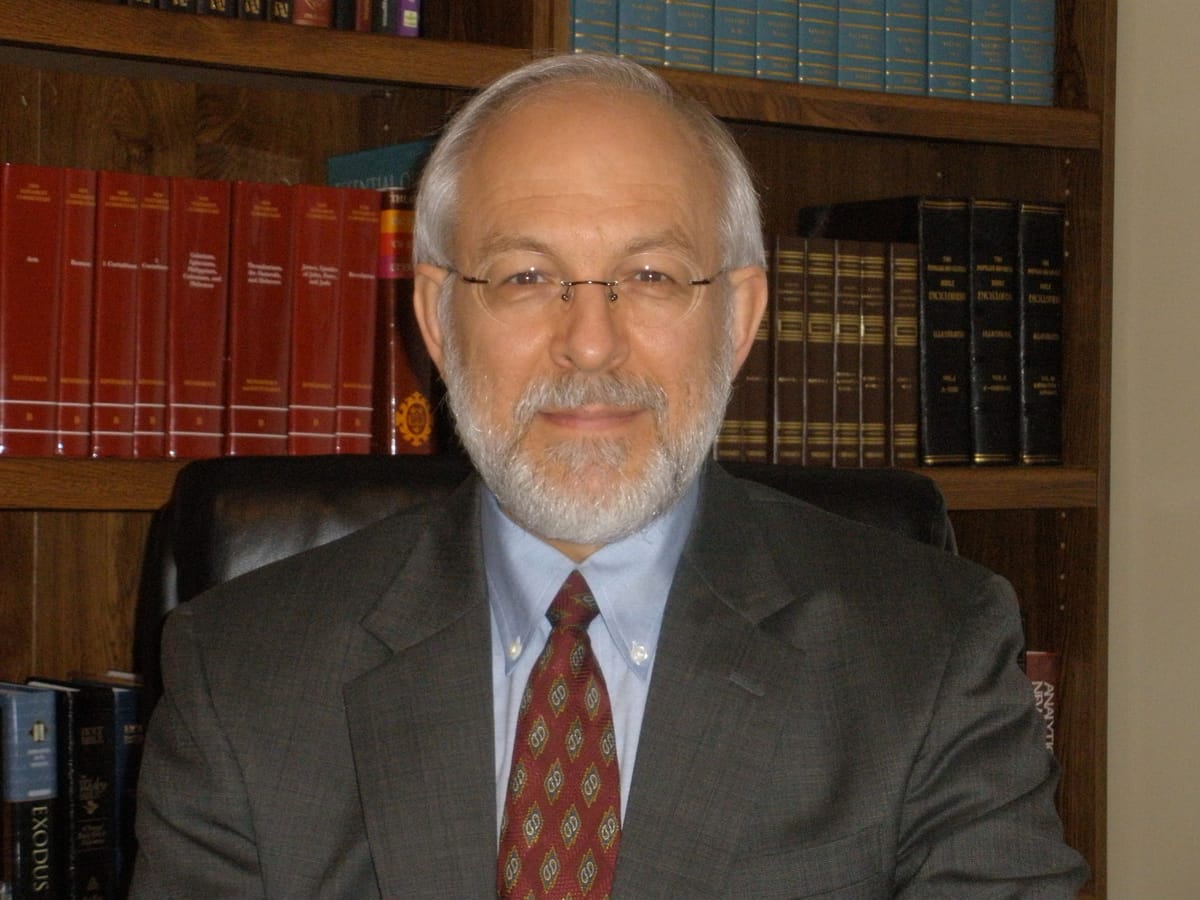Among Christians, the subject of forgiveness is often spoken of but seldom understood in its many aspects. We all know that Jesus died for our sins and that through His shed blood sacrifice we have forgiveness and the remission of our sins. Jesus forgives us.
But when it comes to us forgiving others, numerous difficulties arise. In this series of essays, we shall try to help out.
First of all, let us set forth four statements which will be expounded and demonstrated fully further on in this series.
One: As readers can see, the title of this essay suggests that forgiveness is connected with God’s law of jubilee.
Two: Forgiveness is connected with being an “overcomer.” Not all believers are in the “Overcomer Company,” at least not initially. The Father has ordained a relatively small percentage of believers to be in this special group for a special purpose in His Plan.
It is truly something every Christian should understand, and we would expect that once they understand, they too, will want to be in that number.
Three: Sin, debt, forgiveness, jubilee, and overcomership are all intertwined.
Four: Understanding the path to salvation is fundamental to all the above.
So let us begin there with just a very brief review of that—brief because we have taught about it many times in various lectures over the years. Our studies in overcomership are really all about the Plan of Salvation. There are three steps along the path to complete salvation.
The first is called Justification. That is what millions of Bible-believing church folks refer to as “getting saved.” It is that point in life when a person realizes (most people know instinctively they are not perfect, i.e., a sinner; so let’s rephrase that…) when a person acknowledges that he or she is a sinner and that they cannot save themselves.
So they are brought to faith in Jesus Christ. They confess (profess) their belief that His shed blood on the cross is sufficient for their eternal salvation.
Now therefore, coming to faith in Christ is the first step along the path to salvation. Unfortunately, the net effect of the teaching of many churches is that “getting saved” is all there is to it.
Once you believe in Jesus, you’ve got your ticket to heaven, and about the only thing to do now is to witness to others to get them saved, too. That’s good—as far as it goes—but stopping there is missing two-thirds of the gospel!
Of course, as a Christian now, you are expected to be good and to follow the ten commandments. At the same time, however, many preachers also want the new believer to know that we are “no longer under the law.” That doublemindedness results in confusion in the mind of the new believer and God’s law is seldom taught, if ever.
Many churches in this level of understanding do recognize the need for water baptism of the new believer. As we saw in the biblical types and shadows during our study of the Tabernacle in the Wilderness, water baptism is still part of Phase One of salvation, typified by the Outer Court of the Tabernacle.
Certain denominations teach that just believing in Jesus does not really save you. They stress that once you get baptized, though, then you are truly saved and that’s the end of the salvation process. No, actually there is much more to complete salvation.
We presented ten lectures in our tabernacle series discussing baptism in all its aspects, including which mode or modes of baptism are correct. Again, that is still all part of phase one of salvation. Two to go…
The second phase of salvation answers to the Holy Place in the Tabernacle. It is called Sanctification. It is all about learning to hear God’s voice. It is all about learning God’s law and being obedient. We must immediately stress, however, that we are not saved by our obedience to the law. We are saved by grace through faith, and not by any works.
Ephesians 2:8 For by grace are ye saved through faith; and that not of yourselves: it is the gift of God:
9 Not of works, lest any man should boast.
Rather, we strive to be obedient because it is pleasing to our heavenly Father, and because we want to show our gratitude to Him for what He has already done.
The Bible also teaches that, of all the many millions of believers who have lived and died or are still alive, that only a small percentage—I don’t know what it is, perhaps ten percent, but that is only a guess—but there will be a relatively small number of believers who will be awarded the “high calling” of being overcomers.
Consequently, they will be blessed with all the wonderful rewards associated with being among the overcomer company. What are those rewards? That is too much to go into here. We have a two-part lecture dealing with that. It is called simply Rewards of the Overcomers. Available on two CDs. ($15 postpaid.)
Thus, our 54 lectures about the lives of Saul and David, and our 30-lecture series about Joseph, have really been about sanctification, the second phase of the salvation process.
The exemplary lives of these two Old Testament overcomers, David and Joseph, show us how we ought to live our lives in order to be found worthy to be called out in the first resurrection and thereby to enjoy the blessings of overcomership.
There are many churches which teach various parts of sanctification, although as you can see, it becomes very difficult to stress obedience to the law on the one hand, when on the other hand, most of them teach that the law has been “put away and nailed to the cross.”
I am referring specifically to those brothers and sisters in the charismatic and/or pentecostal movement who place great emphasis on the baptism of the Holy Spirit (part of phase two of salvation). And with that, many of them teach that one gives evidence of having received the Holy Spirit baptism by one’s ability to speak in tongues.
But, as we found in our studies of the tabernacle, the primary characteristic of sanctification is learning to hear, not to speak. I believe in the baptism of the Holy Spirit, but I think our emphasis should be on hearing God’s voice and striving to live a holy life, not on seeking to speak in tongues.
Remember, Paul himself—that is, the Holy Spirit Himself speaking through Paul—pointed out that tongues was the least of the gifts. Sanctification is primarily concerned with holy living.
Holy living is evidenced by spiritual fruit, and that is concomitant with obedience to His commandments, statutes, and judgments. It is a vital component in the life of a believer who wants to move forward in his or her spiritual growth. It is Phase Two of salvation.
Sanctification, however, is not an event like justification, which happens at a moment in time, and then it ought to be followed by water baptism. Both of those are events. Sanctification is a process. After justification, if you perceive that there is more to salvation, then you realize that sanctification lasts the rest of your life.
Phase Three of salvation happens at our resurrection from the grave. It is called Glorification. It is the salvation of your body. It is when you inherit a glorified body like unto that which our Savior possessed after His resurrection.
Therefore, the last thing to be saved is your body. The first is your spirit. Your spirit is saved at your justification. After that event, it then takes a lifetime for God’s Holy Spirit and your spirit to bring our evil-prone soul into subjection to the Spirit.
Without getting too much “into the weeds” here, but for the sake of clarity, spirit and soul are two different things. We are tripartite beings: spirit, soul, and body. Similarly, our soul is tripartite: our mind, our will, and our emotions. Putting all three aspects of our soul together, we could say that is our personality.
Thus, as we stated, salvation is indeed a three-phase process. Justification is the salvation of your spirit. Sanctification is the salvation of your soul, and Glorification is the salvation of your body. Justification, sanctification, glorification. Salvation of our spirit, soul, and body.
That is why Paul could write in one place that you were saved, and in another place, he writes about you are being saved and in yet another place, Paul writes that you will be saved. Past, present, future. Referring to our justification, sanctification and glorification. These are the three phases along the path to salvation.
But since glorification is the final result of the first two, and since I assume that each of you readers has already come to faith in Christ, then our emphasis is always on spiritual growth, sanctification—we are being saved. We are in the process of sanctification.
My calling as a teacher is to those who have already been saved, to those who have been justified. Our calling at Stone Kingdom Ministries is teach beyond the milk of the Word (Phase One of salvation). Phase One is taught by hundreds of thousands of preachers, evangelists, and ministers of all denominations.
Please understand, I am not diminishing that one iota. Preachers, evangelists, etc. have their calling. The milk of the Word is absolutely necessary for the lost and for baby Christians. But our calling at Stone Kingdom Ministries is to feed believers with the meat of the Word.
That having been said, if someone reading our teachings has never turned his life over to the Lord, surrendered completely; if someone has never taken that first step—justification—then, by all means, I ask you to do so right now. Simply confess to God that you recognize your sinful and lost condition and that you accept by faith that Jesus has saved you by His sacrifice on the cross.
Do that with total sincerity—you don’t need to have a minister or anyone else present—you can do that just between you and your Creator. And after you do that, you should arrange for water baptism very soon.
Because if you have never made a confession of faith in Jesus Christ as your Savior, then all of our teaching amounts to mere head knowledge for you, and head knowledge will never get you saved. Think about it. If it did, we would see a lot more university professors who are believers, and I just don’t see all that many in the non-Christian colleges, do you?
That concludes this brief review of the three phases of salvation.
(To be continued.)
~END~




